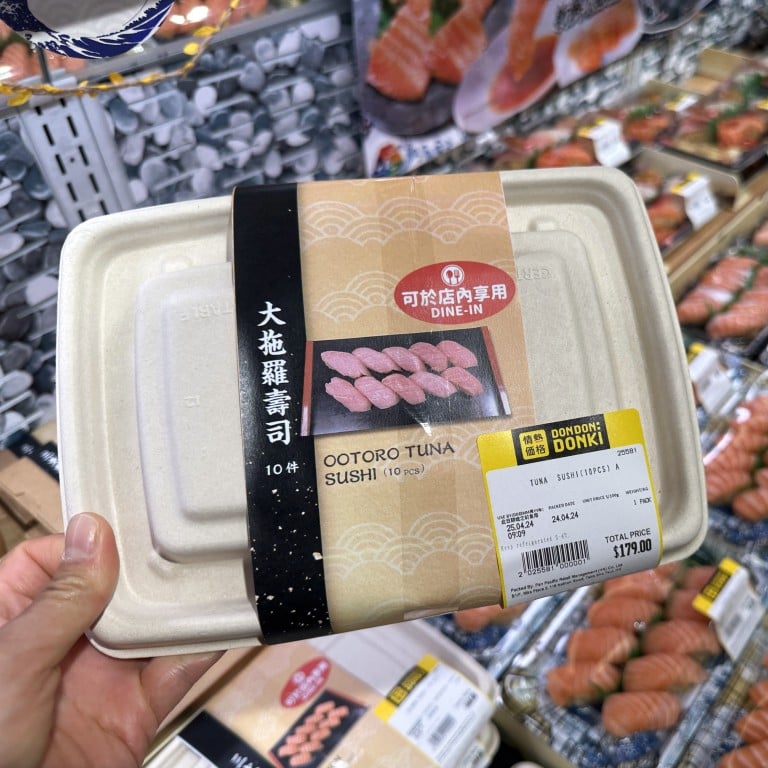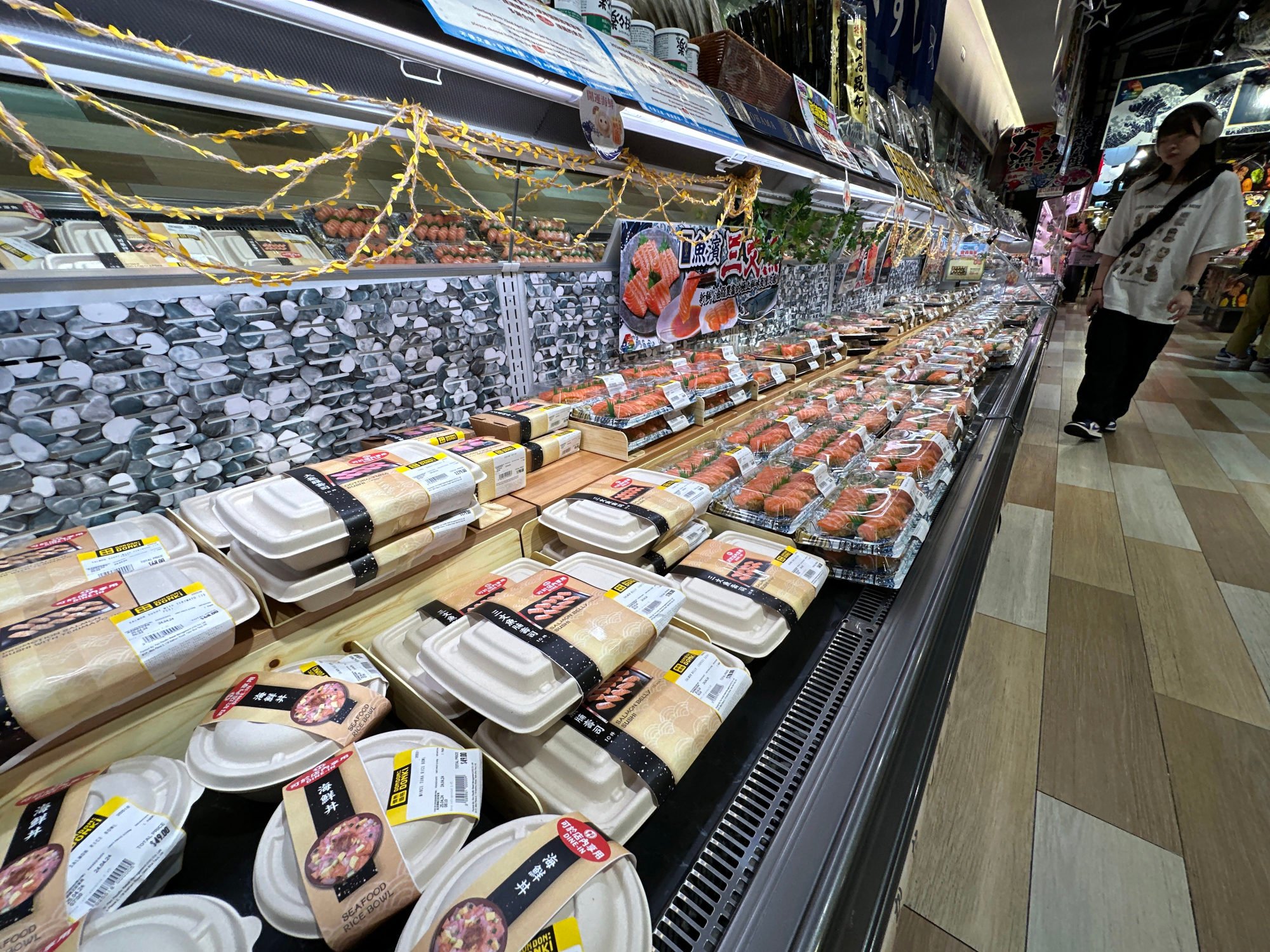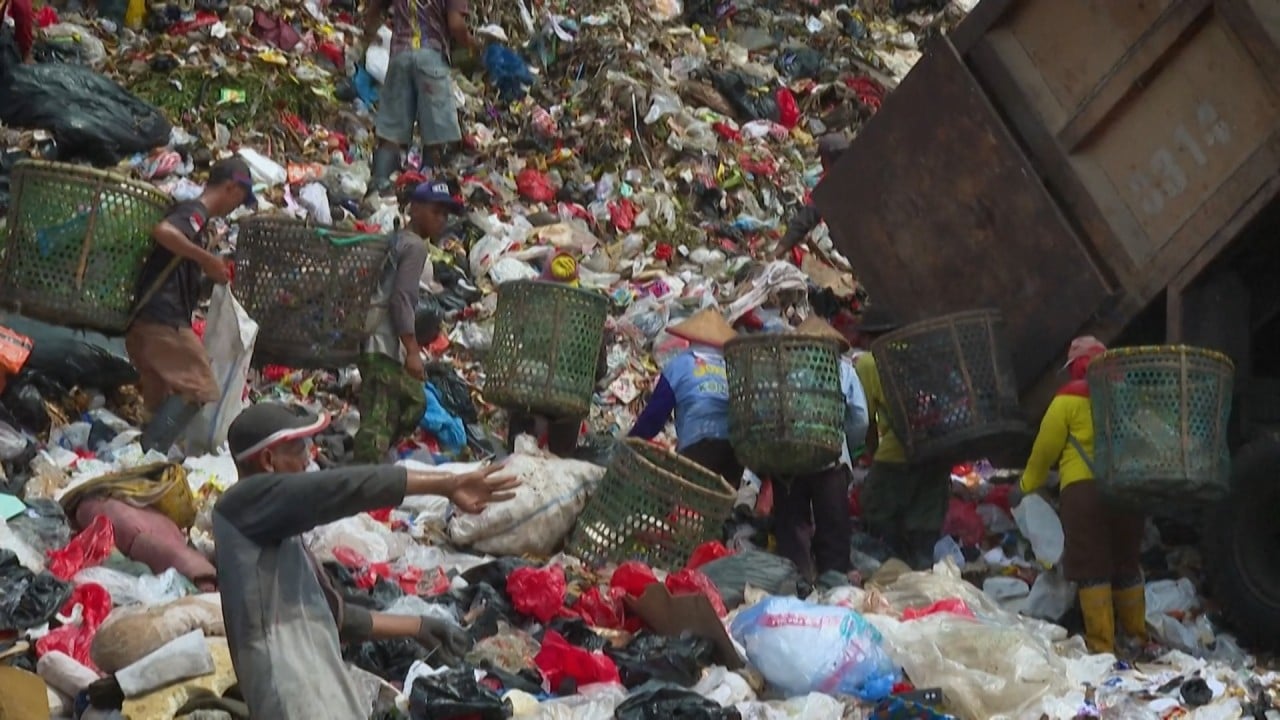
Hong Kong plastics ban: authorities come under fire over sushi guessing game at supermarkets
- Lawmaker Doreen Kong says authorities have only added to confusion by saying sushi can be served in plastic instead of cardboard for dine-in purposes
- Environmental authorities had posted clarification after complaints over consuming Japanese takeaway from supermarkets amid single-use plastics ban
Lawmaker Doreen Kong Yuk-foon on Thursday raised concerns over the Environmental Protection Department’s explanation that supermarkets could still use the containers for dine-in purposes under the single-use plastics ban.
A Facebook post on Wednesday on the page of the department’s mascot, Big Waster, said supermarkets selling sushi could still provide patrons using their dining areas with plastic boxes and lids as the meals were considered “takeaway”.
Authorities made the clarification following complaints over what some consumers described as a guessing game when buying packaged sushi after major Japanese discount chain Don Don Donki put some of its food in cardboard boxes instead of transparent plastic containers for those eating in its dining area.
But lawmaker Kong, also a member of the committee that scrutinised the plastics ban bill, said the explanation was not in line with the law, accusing the department of only creating more confusion.
“It was too eager to reassure the chain stores that they can place sushi in plastic boxes without going through what is written in the law and what they have told the sector before,” she said.
“Such a mistake is totally avoidable and the officials in charge of this should be held accountable for creating such conflicting statements and misinterpreting the law.”
The first stage of the city’s ban on single-use plastics came into force on Monday, restricting eateries from handing out items such as plastic spoons, forks and gloves.
The ban, governed by the Product Eco-responsibility (Amendment) Ordinance, also prohibits stores from offering plastic containers and lids for dine-in dishes.
According to the legislation, a caterer is engaged in dine-in services when “the purpose of serving the food or drink [is] for consumption on the premises”.
Will picking sushi in Hong Kong become more of a lottery under plastics ban?
A document released by the department in February to assist industry operators adapt to the ban said “food from [the] cooked food section and for consumption within the supermarket dining area falls under the regulation for dining-in, and all the nine types of disposable plastic utensils can’t be provided”.
The department said on Thursday that if a supermarket provided made-to-order food, such as fried noodles, and had a dining area on-site for customers to eat, then the meal would be considered dine-in and thus plastic tableware and packaging would be prohibited.
But prepackaged food prepared for immediate consumption and placed on shelves, such as boxed sushi or sandwiches, was considered takeaway and therefore plastic packaging was allowed.

Edwin Lau Che-feng, founder and executive director of The Green Earth, said it was “quite obvious” that under the legislation, any food eaten on the premises where it was purchased should be treated as dining in, but he urged the government to do more to clarify.
“As laws can be quite complicated … this requires the government to explain very clearly to every sector and to the general public so that they will not misunderstand the law and fall into some grey areas,” he said.
But Lau added that those who were frustrated by the sushi guessing game should consider more broadly how the city could transition to a takeaway model where people used their own reusable containers more often, which would also be better for the environment.
HK$888,888 for a set of plastic utensils? Hongkongers have some fun with ban
Non-plastic single-use packaging, including cardboard boxes, still ended up in the city’s landfills, he said.
“It is not a difficult task for us. I think bring-your-own is quite simple,” he said. “This is the best and most effective approach to waste reduction.”
In the Facebook post on Wednesday, authorities said restaurants could still offer plastic containers to diners who wished to pack food they did not finish.
They also pledged to clear up any misunderstandings from restaurant operators during a six-month grace period.
But the statement by authorities drew angry responses from internet users, who complained about the lack of clarity over the new policy.
Some also said supermarkets still had to pack sushi in cardboard boxes eventually when the second stage of the ban kicked in, under which plastic containers would be prohibited for takeaway orders as well.
Gloves for fried chicken? Hongkongers ditch plastic to avoid poultry sum of HK$1
Under the first phase of ban, restaurants are prohibited from offering styrofoam products and throwaway plastic items such as cutlery and straws to both dine-in and takeaway customers.
They are also banned from offering plastic cups, containers and lids to dine-in patrons.
Following the six-month grace period, offenders will face a maximum fine of HK$100,000 (US$12,770) and may also be required to pay HK$2,000 under a fixed penalty system.



